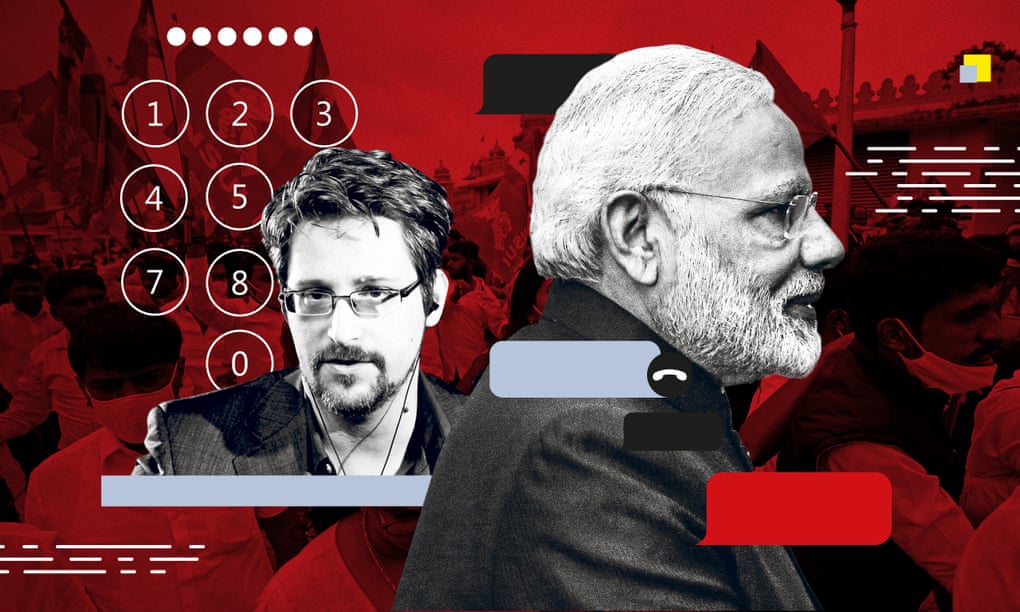by ARUNDHATI ROY

The Pegasus project shows we could all soon be ruled by states that know everything about us, while we know less and less about them
Here in India, the summer of dying is quickly morphing into what looks very much like a summer of spying.
The second wave of coronavirus has retreated, after leaving an estimated 4 million Indians dead. The official government figure for the number of deaths is a tenth of that – 400,000. In Narendra Modi’s dystopia, even as the smoke dwindled in crematoriums and the earth settled in graveyards, gigantic hoardings appeared on our streets saying “Thank you Modiji”. (An expression of the people’s gratitude-in-advance for the “free vaccine” that remains largely unavailable – with 93% of the population yet to be fully vaccinated.) As far as Modi’s government is concerned, any attempt to tabulate the true death toll is a conspiracy against India – as if the millions more who died were simply actors who lay down spitefully in the shallow, mass graves that you saw in aerial photos, or floated themselves into rivers disguised as corpses, or cremated themselves on city sidewalks, motivated solely by the desire to sully India’s international reputation.
This same charge has now been levelled by the Indian government and its embedded media against the international consortium of investigative journalists from 17 news organisations who worked with Forbidden Stories and Amnesty International to break an extraordinary story about global surveillance on a massive scale. India appears in these reports, alongside a group of countries whose governments appear to have bought Pegasus spyware developed by NSO Group, an Israeli surveillance firm. NSO, for its part, has said that it sells its technology only to governments that have been vetted for their human rights record and undertake to use it only for purposes of national security – to track terrorists and criminals.
The other countries that seem to have passed NSO’s human rights test include Rwanda, Saudi Arabia, Bahrain, the UAE and Mexico. So who, exactly, has agreed upon the definition of “terrorists” and “criminals”? Is this simply up to NSO and its clients?
Other than the exorbitant cost of the spyware, which runs into hundreds of thousands of dollars per phone, the NSO charges an annual system maintenance fee of 17% of the total cost of the program. There has to be something treasonous about a foreign corporation servicing and maintaining a spy network that is monitoring a country’s private citizens on behalf of that country’s government.
The Guardian for more
